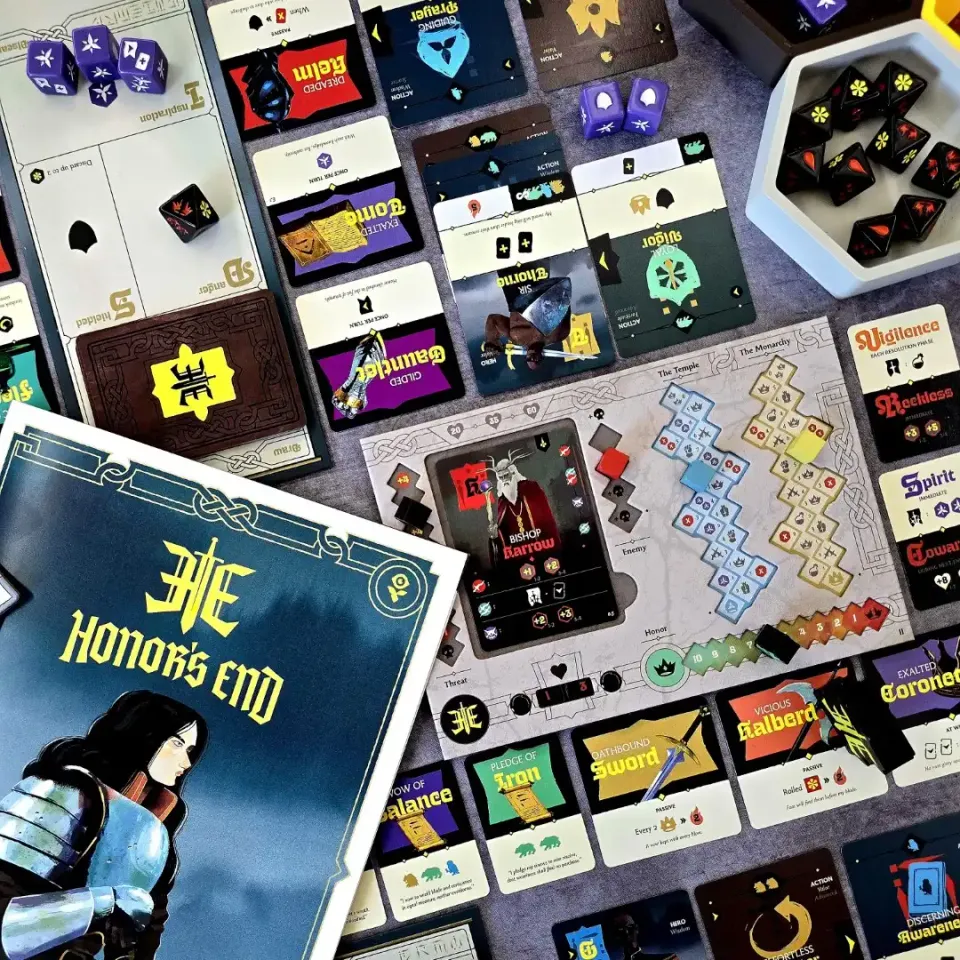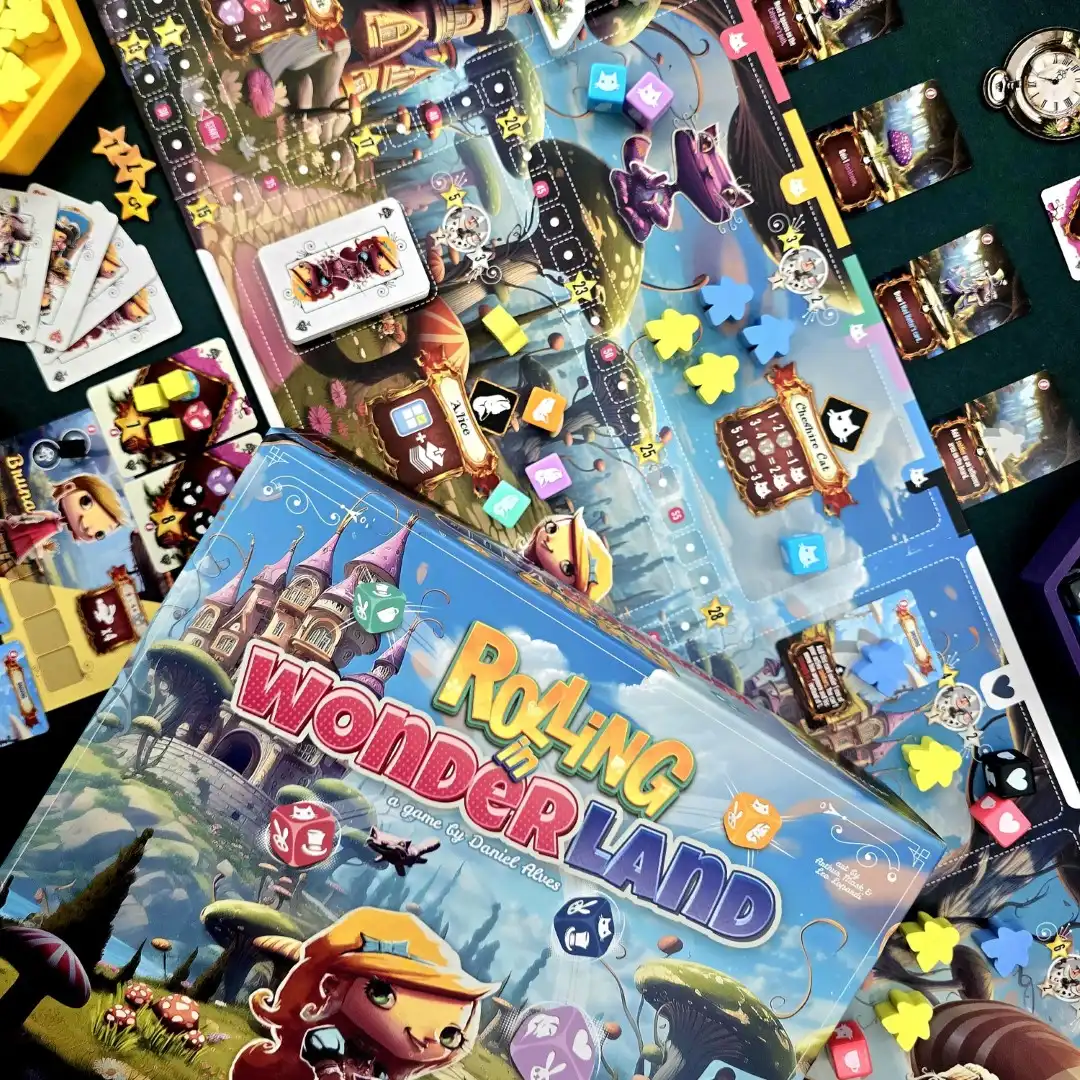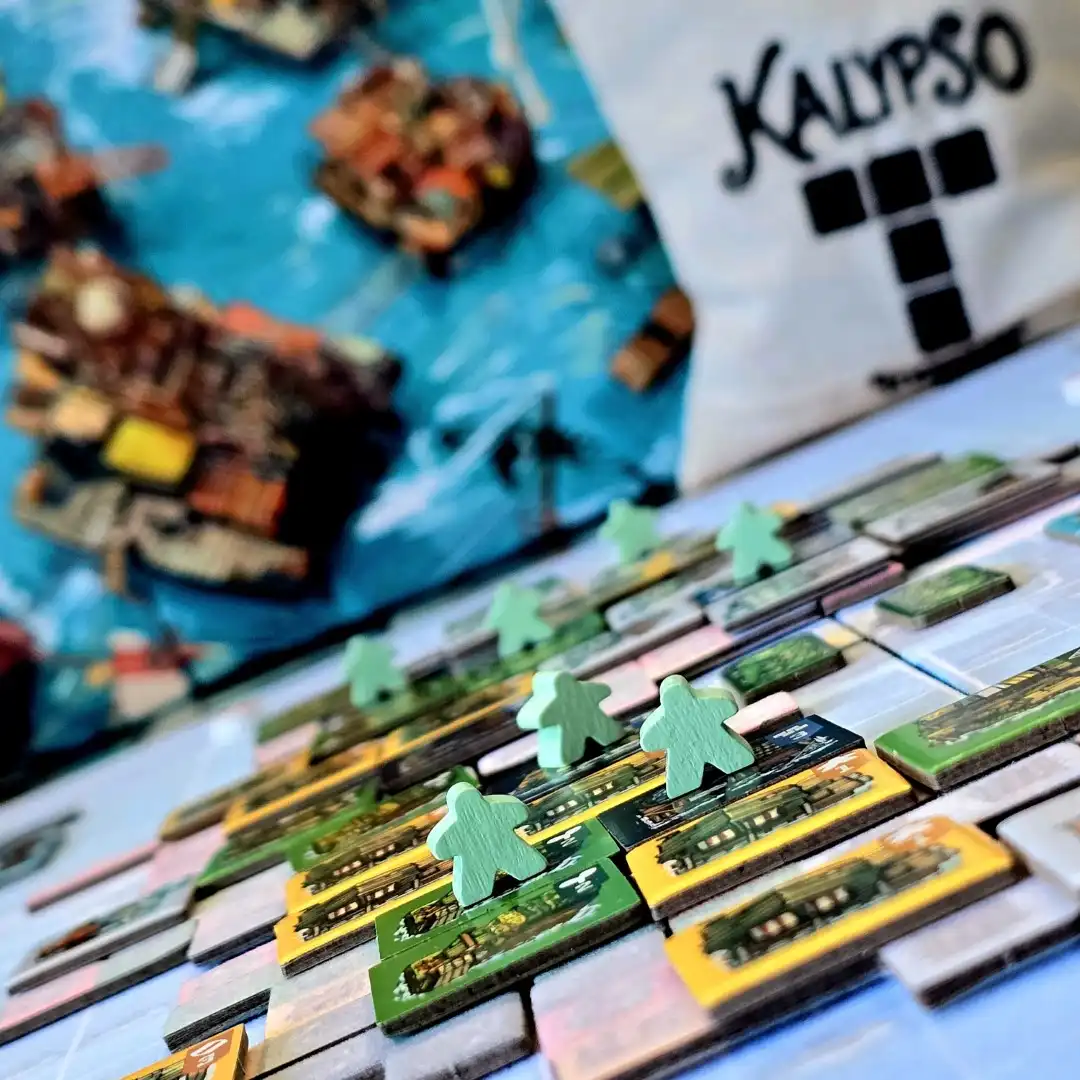Four ancient games of Africa
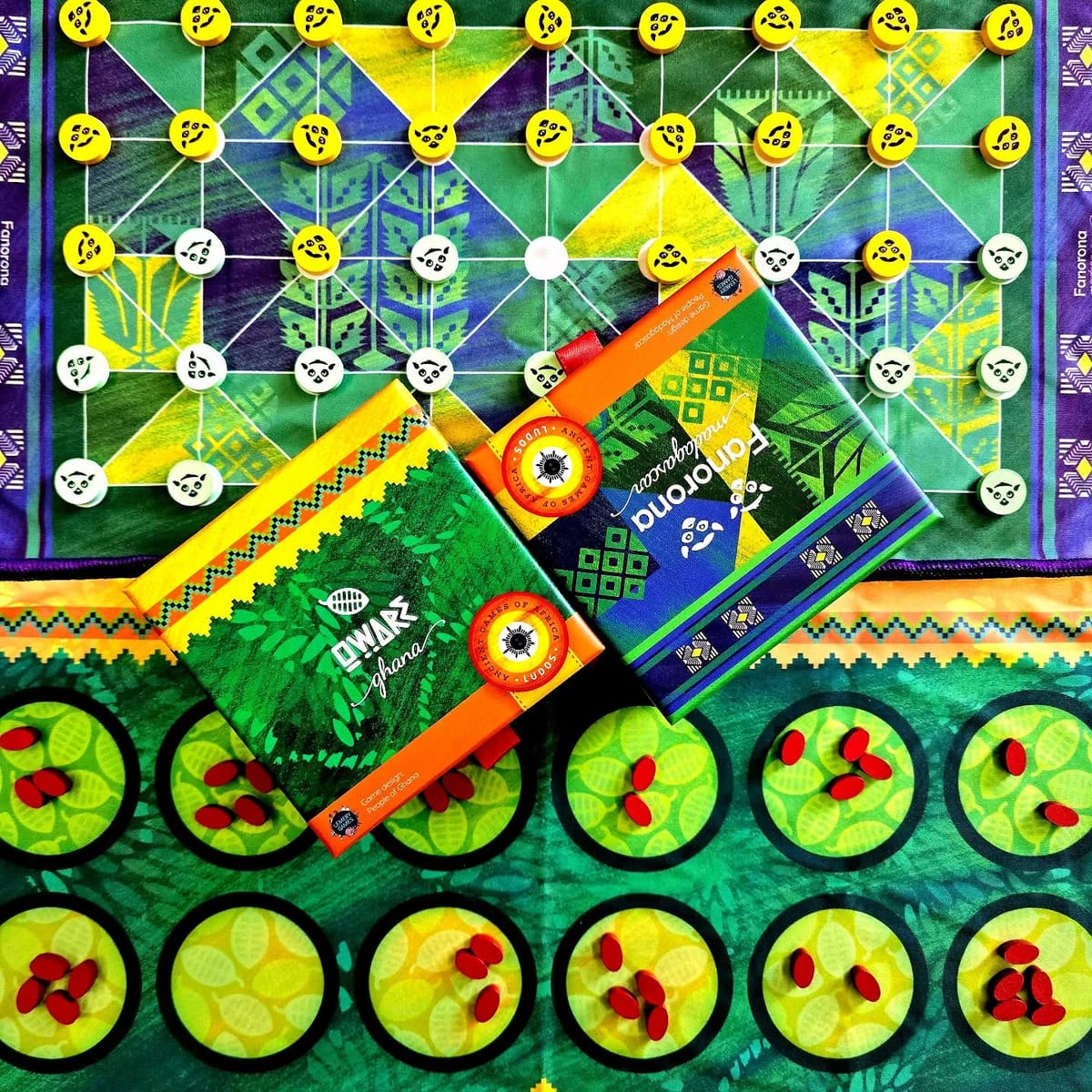
With all the Spiel preparations going on, let’s slow down a bit and take a closer look at Ludos which we briefly introduced 2 weeks ago. It brings 4 little abstract games from Africa for 2 players! 🙃
The first one is Yoté from Mali, a game in which players either place down or orthogonally move camels 🐪 on a 6x5 grid, trying to jump over opposing camels to capture them. Capturing a camel also lets you remove another one from somewhere, so mistakes are harshly punished. Your goal is to capture every camel of your opponent.
Then there is Dara from Nigeria. Another game on a 6x5 grid, this time a face-off between lions 🦁 and elephants 🐘. Divided into two parts, players first place down their pieces, then they get to move them around orthogonally. The goal is to line up 3 pieces in a tic-tac-toe manner to get to remove rival pieces. If someone has less than 2 remaining, they lose.
Fanorona stems from Madagascar. Players control two rival families of Lemurs 🐒. The grid of this game is a bit more involved, as certain spots are connected both orthogonally and diagonally with others. If you move forward towards enemy lemurs you remove all in a line, but you can also “lure” them by moving away to also remove all similarly. This game is a real “bloodbath”, especially as games begin with an almost full grid. 😅
Finally we have Oware (our favorite), a game from Ghana. This is actually a Mancala game, a game mechanic which inspired a lot of contemporary board games! You pick up and place down beans 🫘 one by one counter-clockwise in your bowls, trying to cleverly land so you get to steal (or rather “harvest”) your rival’s beans. Harvest 25 pieces and you win!
💭All games are very accessible, play fast and are very travel friendly thanks to the little pouches included in the box. Each play cloth is double sided and there are variant rules included for each game, as they are played in many regions slightly differently!
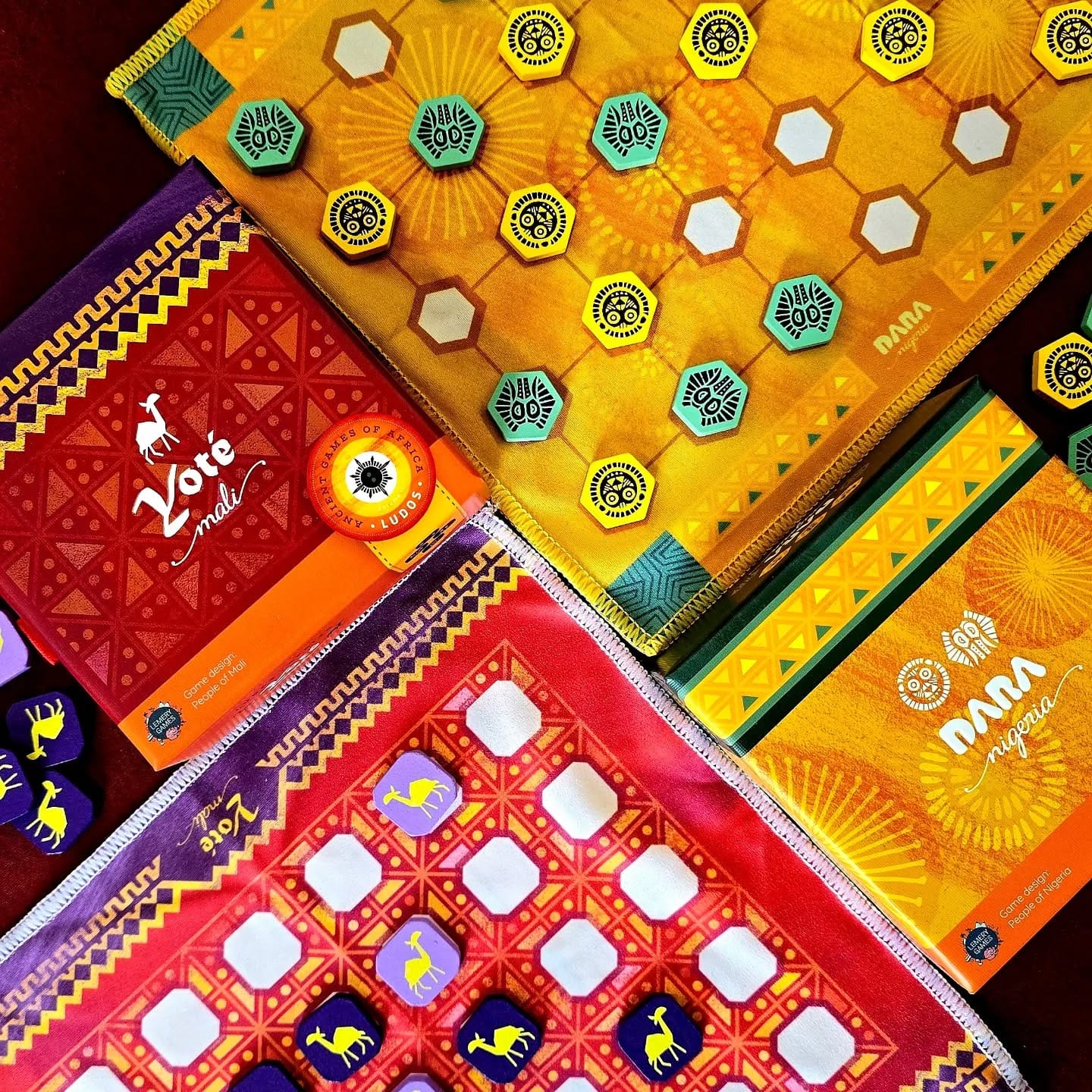
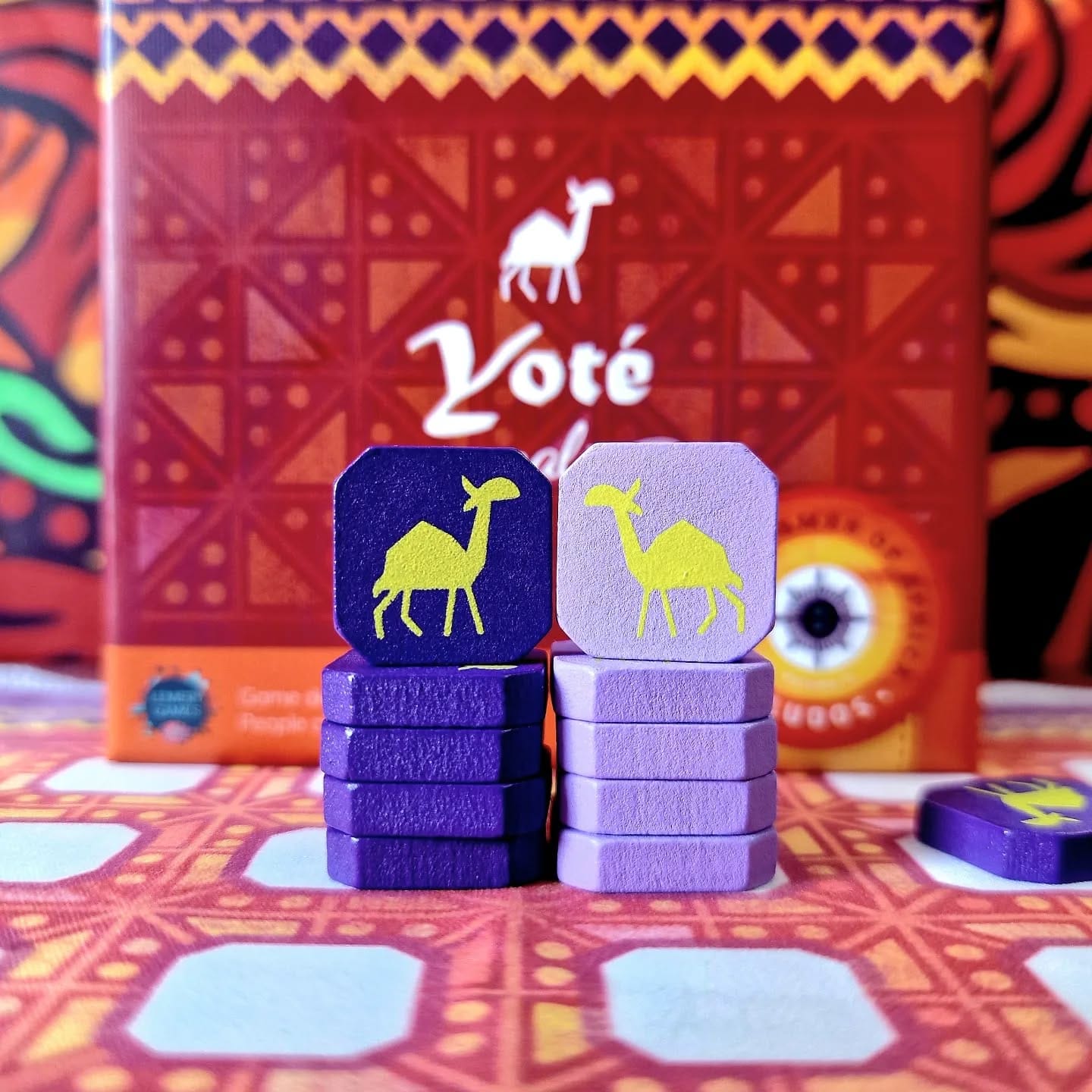
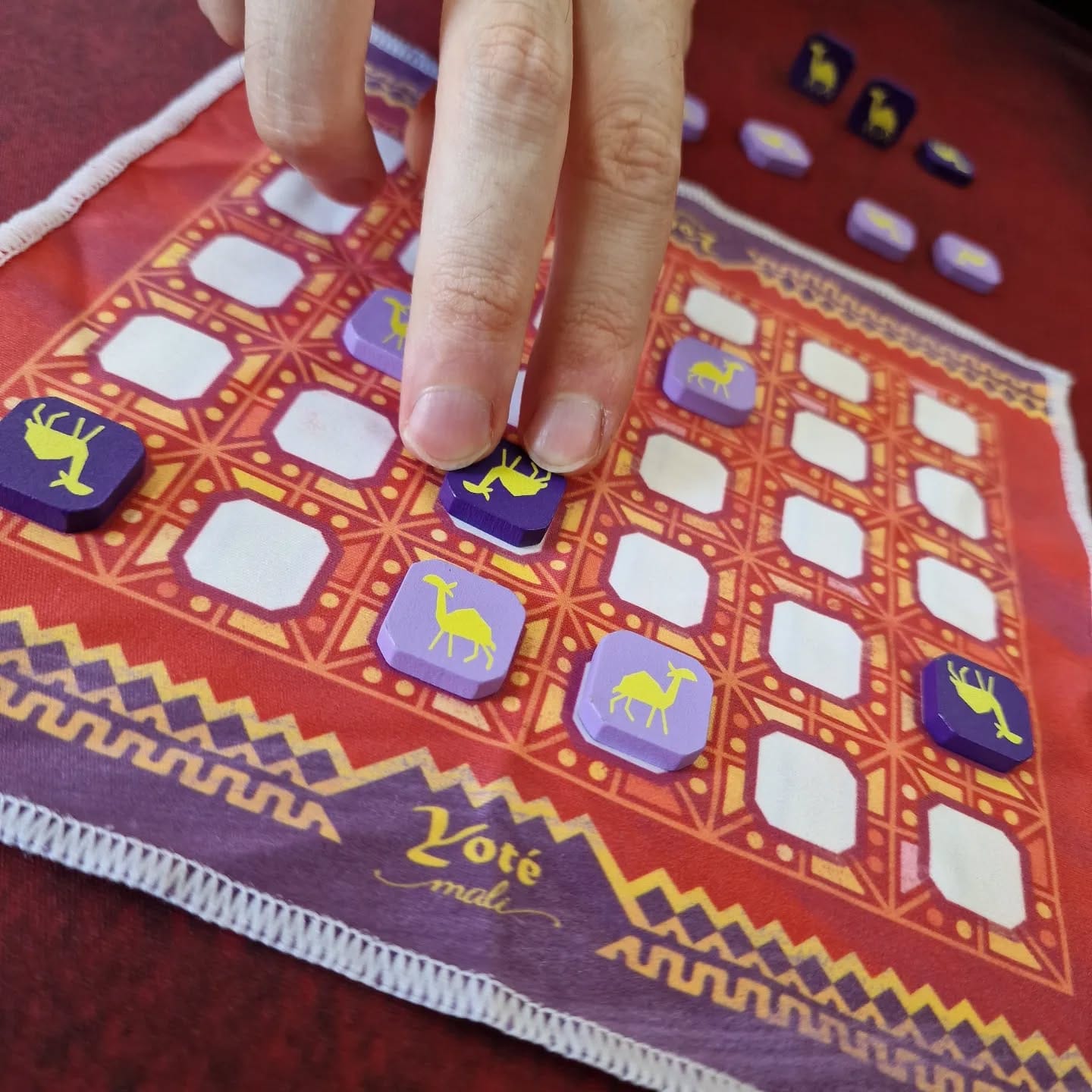
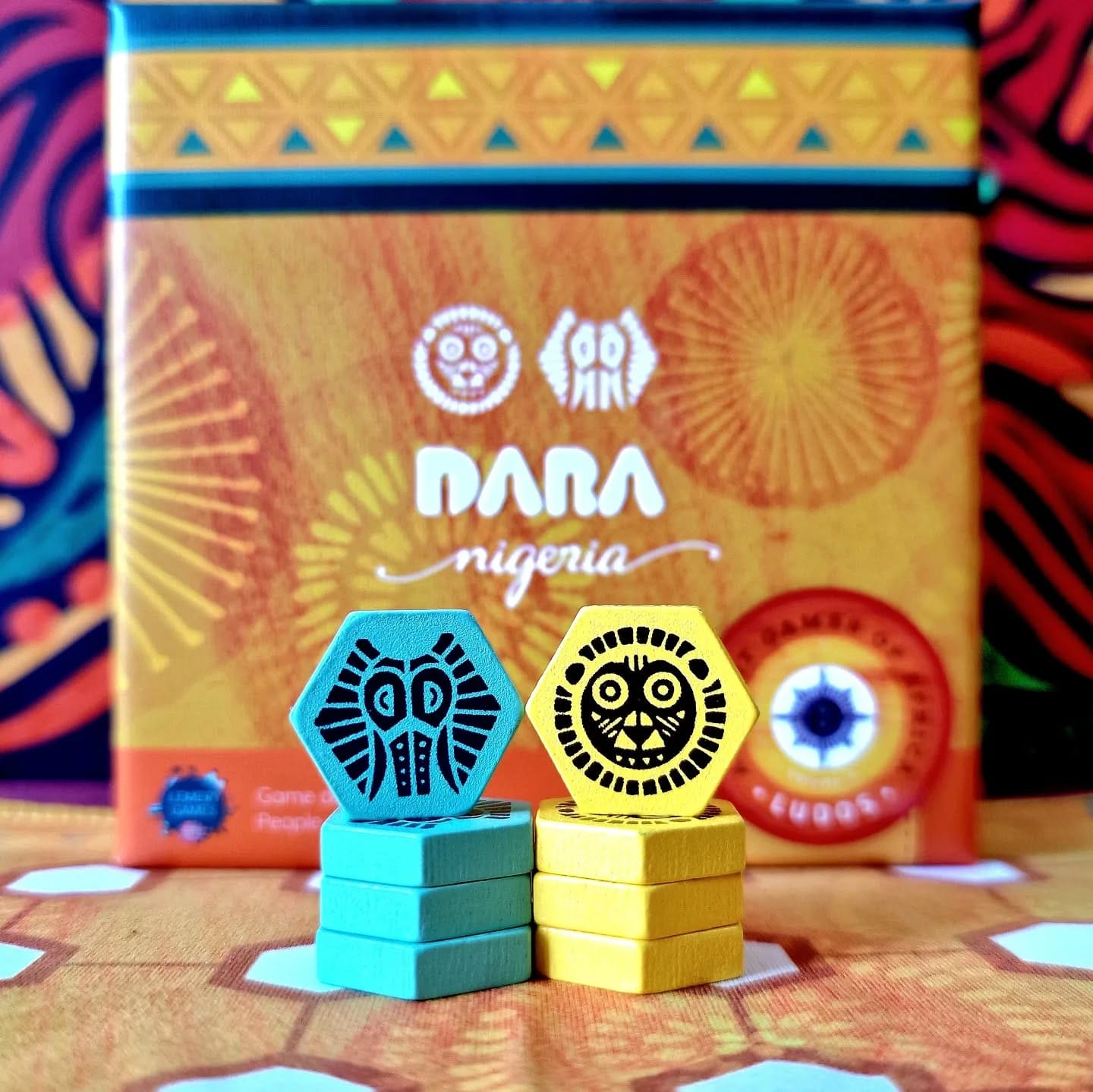
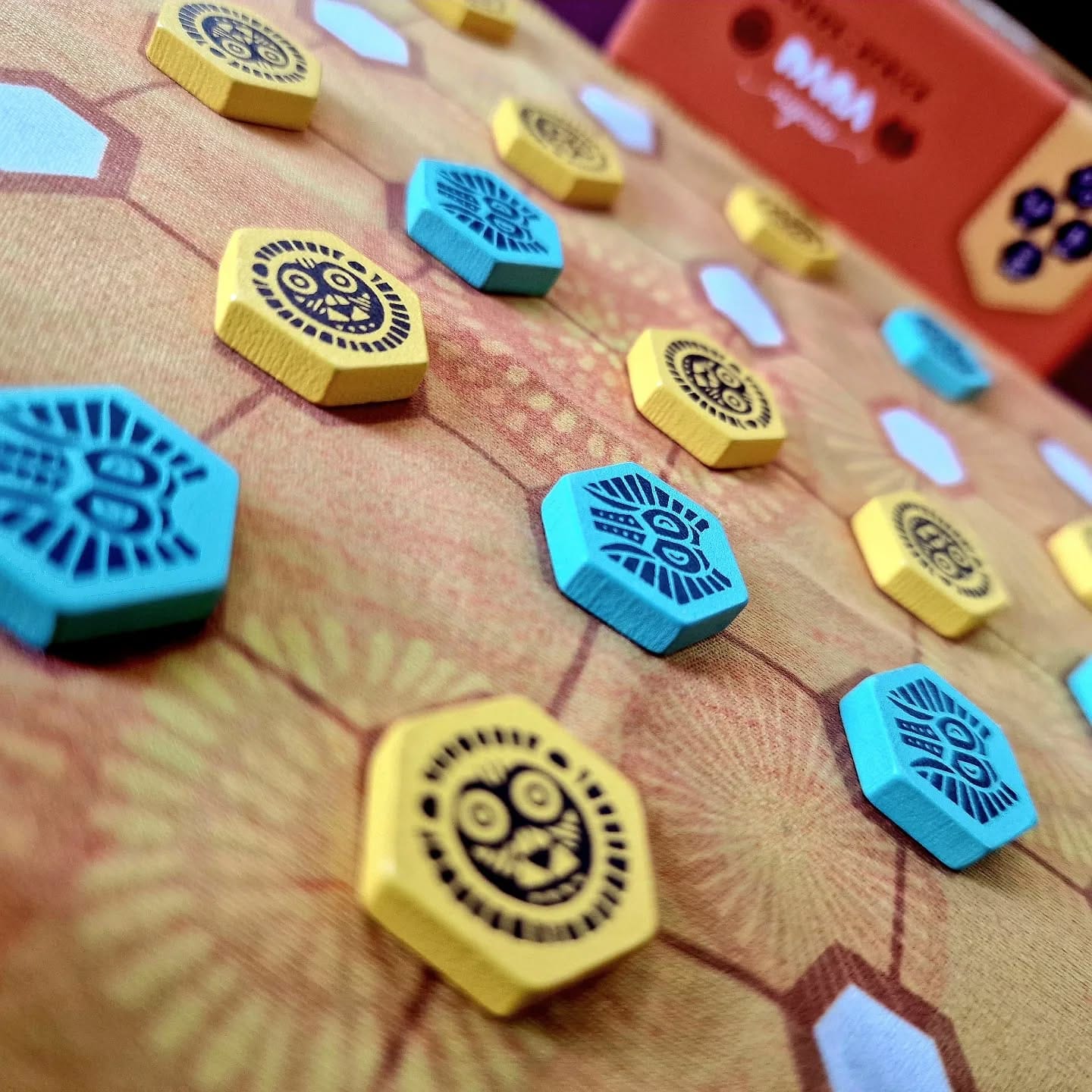
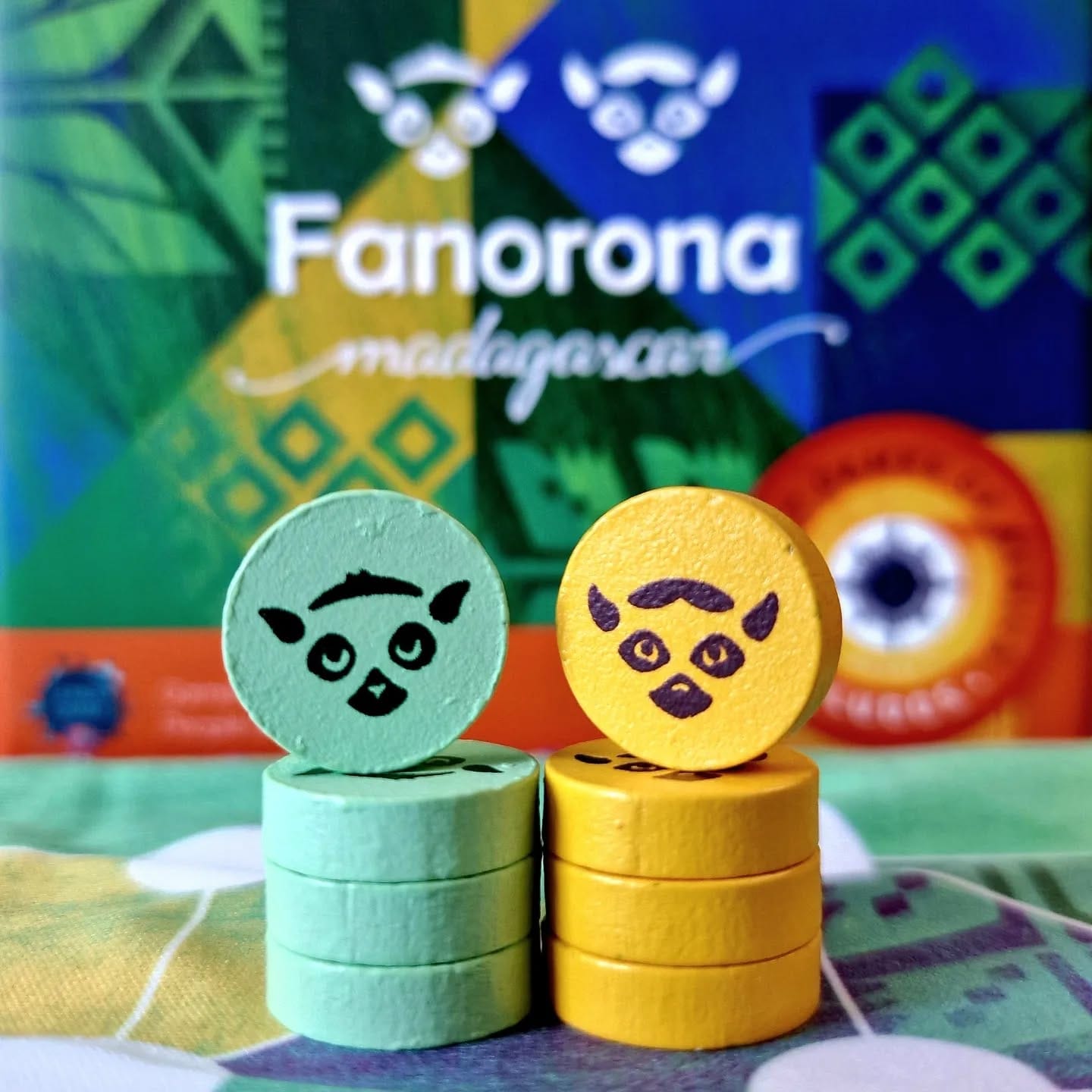
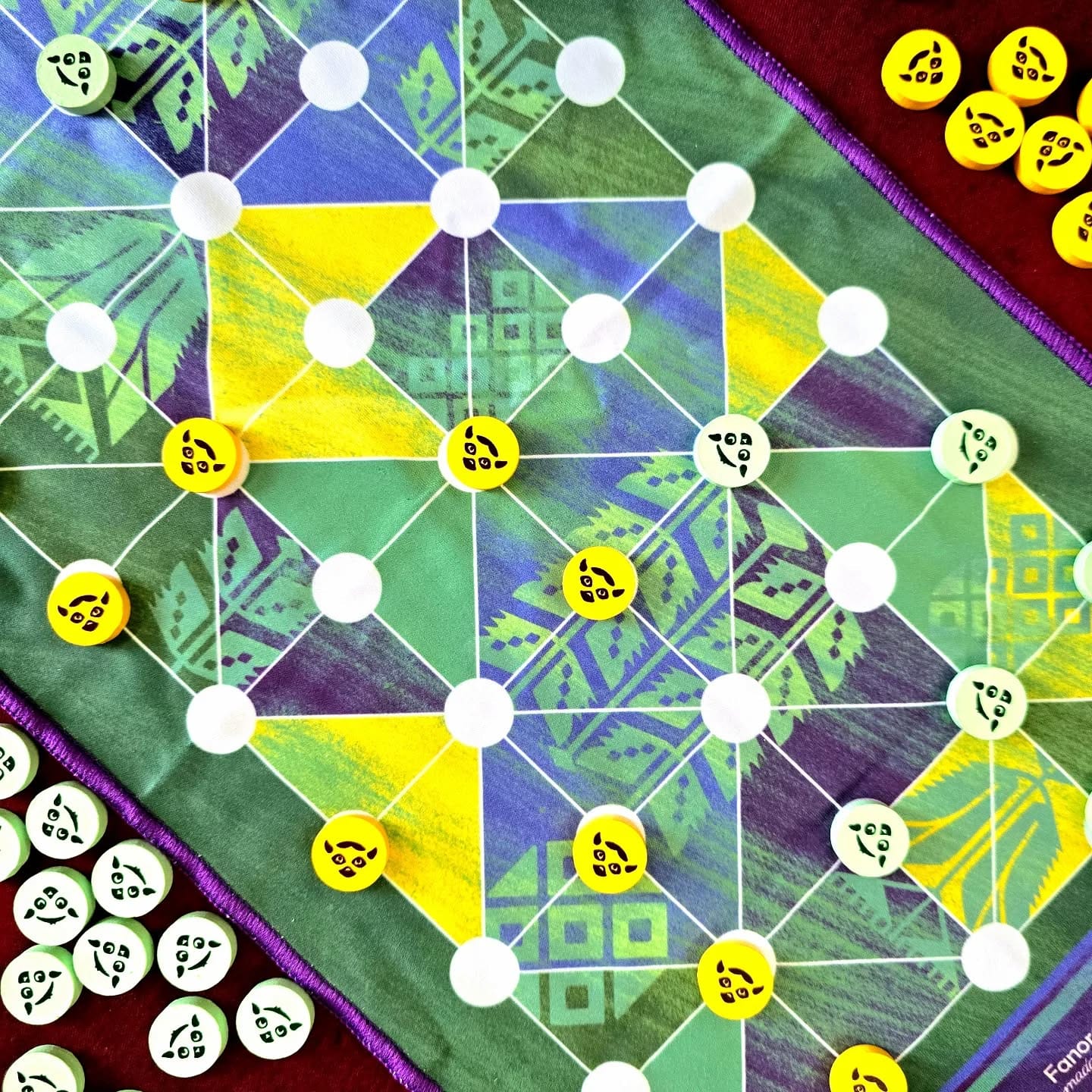
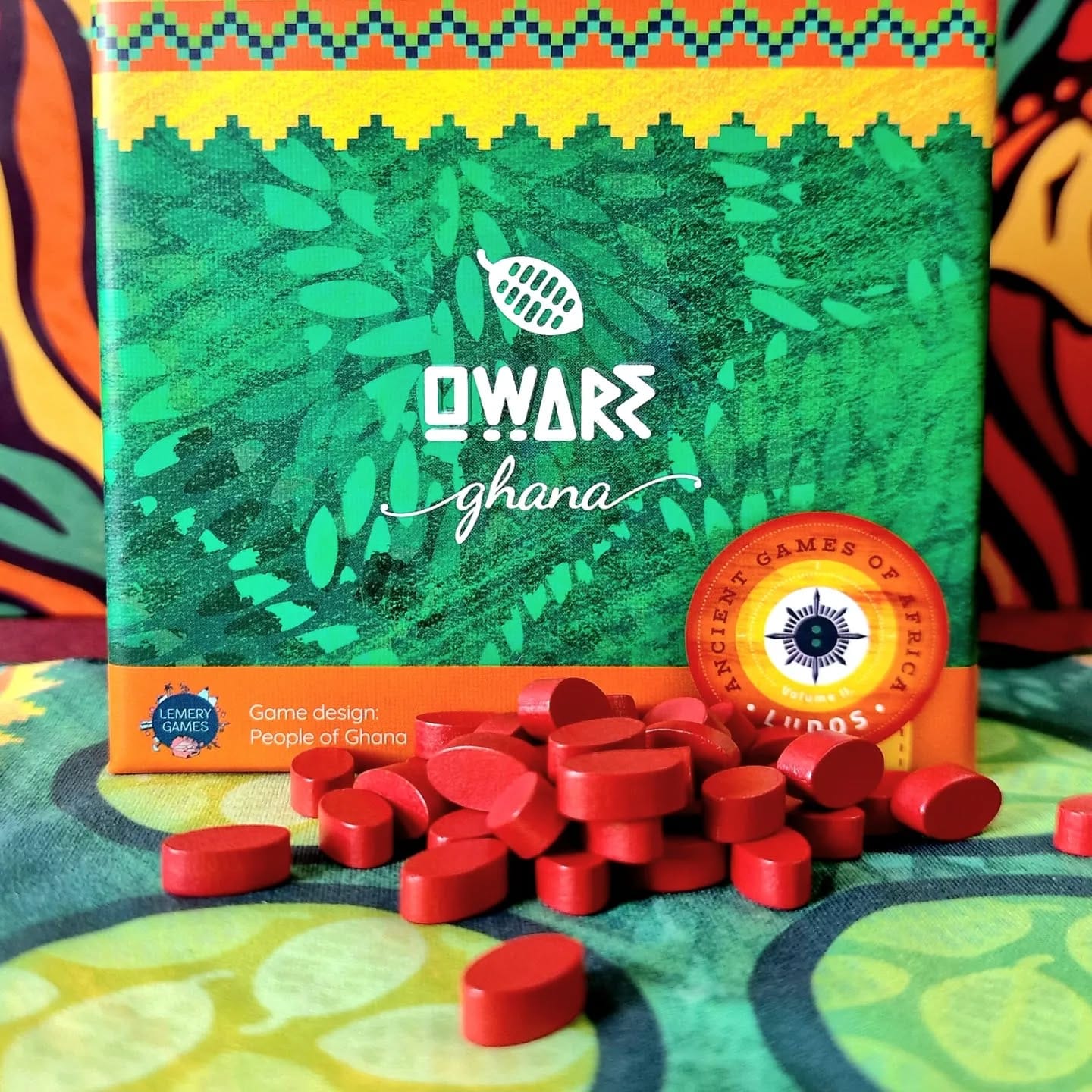
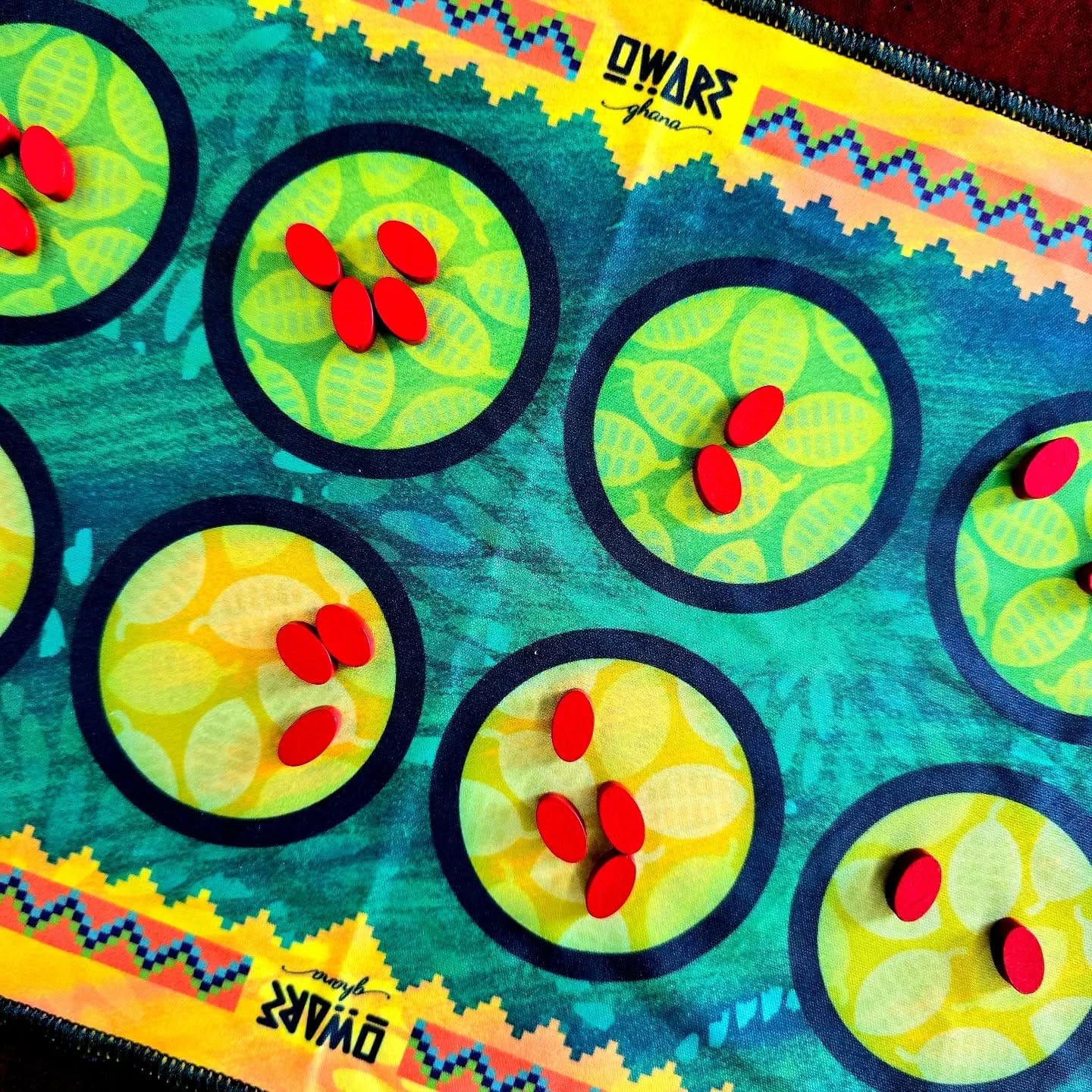
A prototype of this game was kindly shared by the publisher for us to try out. Just a heads-up: all the components are prototypes, so things might look or play a bit differently in the final version. For more details, check out our content policy.
